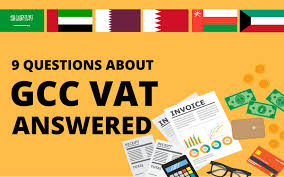Now Reading: GCC: 5 Smart Tips on VAT Across All Emirates in 2025
-
01
GCC: 5 Smart Tips on VAT Across All Emirates in 2025
GCC: 5 Smart Tips on VAT Across All Emirates in 2025

Table of Contents
Tips on VAT Across All Emirates: The Gulf Cooperation Council (GCC) real estate market, valued at $131.86 billion in 2024 and projected to reach $252.80 billion by 2033 with a 7.1% CAGR, is propelled by mega-projects like NEOM and Dubai’s Hatta Master Plan, per imarcgroup.com.
In the UAE, a key GCC player, the 5% Value Added Tax (VAT), introduced on January 1, 2018, under Federal Decree-Law No. 8 of 2017, applies uniformly across all seven Emirates—Abu Dhabi, Dubai, Sharjah, Ajman, Umm Al Quwain, Ras Al Khaimah, and Fujairah—administered by the Federal Tax Authority (FTA), per taxsummaries.pwc.com.
Real estate transactions, including SAR 50 million ($13.33 million) developments, face VAT complexities, with exemptions and zero-rating for specific supplies, per cleartax.com. This guide, crafted in clear, SEO-friendly language with an engaging tone, provides five smart VAT tips for real estate investors in the UAE in 2025, supported by data, legal insights, and risk mitigation strategies.
5 Smart Tips on VAT Across All Emirates

1. Leverage Zero-Rating for First-Time Residential Sales
The first sale of new residential properties within three years of completion is zero-rated (0% VAT) across all Emirates, allowing developers to recover input VAT on construction costs, per FTA’s VAT Public Clarification VATP029. This benefits SAR 50 million ($13.33 million) projects in Dubai’s Business Bay or Abu Dhabi’s Saadiyat Island, per realestatesaudi.com.
- Tax Savings: Recovers $666,500 input VAT on $13.33 million construction costs for a $13.33 million villa, per consultancy-me.com.
- Investor Action: Ensure completion certificates are issued within three years for SAR 30 million ($8 million) projects, per alaan.com.
- Example: A $13.33 million Dubai Marina residential tower recovers $533,200 VAT, yielding $1.07 million at 8%.
- Source: cleartax.com, consultancy-me.com, alaan.com
2. Optimize VAT Exemptions for Residential Leases
Residential leases (except the first sale) and subsequent sales of residential properties are VAT-exempt across all Emirates, reducing costs for tenants and investors in SAR 20 million ($5.33 million) Sharjah or Ajman rentals, per taxsummaries.pwc.com. However, input VAT on related expenses is non-recoverable.
- Tax Savings: Saves $266,600 VAT on $5.33 million annual rental income, per nevestate.com.
- Investor Action: Segregate commercial and residential expenses in mixed-use projects like Ras Al Khaimah’s Al Marjan Island to maximize input VAT recovery, per makca.co.
- Example: A $5.33 million Ajman apartment lease avoids $266,600 VAT, yielding $426,400 at 8%, though $106,600 input VAT is non-recoverable.
- Source: taxsummaries.pwc.com, nevestate.com, makca.co
3. Claim Input VAT on Commercial Property Development
Commercial property sales and leases, such as SAR 50 million ($13.33 million) offices in Abu Dhabi’s Al Maryah Island or Dubai’s DIFC, are subject to 5% VAT, but developers can recover input VAT on construction and operational costs, per FTA’s VAT Guide on Real Estate, per deloitte.com.
- Tax Savings: Recovers $666,500 input VAT on $13.33 million commercial project costs, per finanshels.com.
- Investor Action: File quarterly VAT returns with detailed invoices for SAR 30 million ($8 million) projects via FTA’s portal, per saudihelplinegroup.com.
- Example: A $13.33 million Dubai office tower recovers $666,500 VAT, boosting $933,100 yields at 7%.
- Source: deloitte.com, finanshels.com, saudihelplinegroup.com
4. Navigate VAT on Real Estate Transfers with Reverse Charge

For VAT-registered buyers in Emirates like Sharjah or Umm Al Quwain, the reverse charge mechanism applies to SAR 50 million ($13.33 million) real estate transfers, shifting VAT liability to the buyer, who can recover it if eligible, per FTA’s Cabinet Decision No. 52 of 2017. This streamlines cash flow, per pwc.com.
- Tax Savings: Saves $666,500 upfront VAT payment on a $13.33 million transfer, recoverable by the buyer, per shuraatax.com.
- Investor Action: Ensure both parties are VAT-registered and document reverse charge compliance for SAR 20 million ($5.33 million) deals, per bestaxca.com.
- Example: A $13.33 million Sharjah warehouse transfer saves $666,500 cash flow, yielding $1.07 million at 8%.
- Source: pwc.com, shuraatax.com, bestaxca.com
5. Ensure Compliance with E-Invoicing Mandates
The UAE mandates e-invoicing for VAT-registered businesses with taxable supplies exceeding AED 187,500 ($51,020) by 2025, enhancing transparency for SAR 50 million ($13.33 million) projects across all Emirates, per FTA’s Decree-Law No. 18 of 2024. Non-compliance risks penalties up to AED 50,000 ($13,605), per cleartax.com.
- Tax Savings: Avoids $13,605 penalties per violation, ensuring $666,500 VAT recovery, per cityscapeglobal.com.
- Investor Action: Integrate e-invoicing systems with FTA’s platform for SAR 30 million ($8 million) Dubai or Fujairah projects, per saudigulfprojects.com.
- Example: A $13.33 million Business Bay retail project avoids $27,210 penalties, yielding $933,100 at 7%.
- Source: cleartax.com, cityscapeglobal.com, saudigulfprojects.com
Legal and Tax Framework

- UAE VAT Framework:
- VAT Rate: 5% on taxable supplies, zero-rated for first residential sales, exempt for residential leases, per FTA’s Decree-Law No. 8 of 2017, per taxsummaries.pwc.com.
- Registration Threshold: Mandatory for businesses with taxable supplies over AED 375,000 ($102,041); voluntary above AED 187,500 ($51,020), per cleartax.com.
- RETT: 2–4% transfer fees (e.g., 4% in Dubai, 2% in Abu Dhabi), split between buyer/seller, per immigrantinvest.com.
- Municipality Tax: 5% of rental value for residential, 2.5% for commercial in Dubai, paid by tenants/owners, per taxsummaries.pwc.com.
- Penalties: Up to AED 50,000 ($13,605) for non-compliance, per cleartax.com.
- E-Invoicing: Mandatory by 2025 for VAT-registered entities, per deloitte.com.
- Foreign Ownership: 100% allowed in designated zones, per kslaw.com.
- U.S. Tax Framework:
- Reporting: Declare income via Forms 1040, 1116, Schedule E under FATCA. Income taxed at 10–37%, capital gains at 0–20%, per IRS.
- Foreign Tax Credit (FTC): Offset UAE VAT against U.S. liability, per brighttax.com.
- FEIE: $130,000 exclusion for earned income, not rentals.
- Residency: AED 2 million ($545,000) property investments qualify for UAE Golden Visa, per immigrantinvest.com.
Risks and Mitigation
- Non-Compliance Penalties: E-invoicing or VAT filing errors risk AED 50,000 ($13,605) fines, per cleartax.com. Use FTA-approved software, per alaan.com.
- Oversupply: 35,000 units in 2025 may cut yields by 2–3%, per cushwake.ae. Target high-demand areas like Dubai Marina, per realestatesaudi.com.
- Input VAT Recovery Errors: Incorrect claims risk audits. Maintain detailed records, per makca.co.
- Currency Fluctuations: AED/USD volatility impacts returns. Hedge via Emirates NBD, per omniacapitalgroup.com.
- U.S. Tax Burden: IRS reporting reduces returns. Maximize FTC, per brighttax.com.
Step-by-Step Guide for U.S. Investors
- Assess VAT Rules: Evaluate SAR 20–50 million ($5.33–$13.33 million) projects for zero-rating/exemptions, per cleartax.com.
- Set Budget: Allocate $13.33 million, including 5% VAT ($666,500, if applicable) and 4% transfer fees ($533,200 in Dubai), per immigrantinvest.com.
- Target Property Type: Focus on zero-rated residential or VAT-recoverable commercial in Abu Dhabi/Dubai, per nevestate.com.
- Register for VAT: Enroll with FTA if taxable supplies exceed AED 375,000 ($102,041), per finanshels.com.
- Implement E-Invoicing: Integrate systems for SAR 30 million ($8 million) projects by 2025, per deloitte.com.
- Secure Financing: Obtain 80% LTV mortgages at 4.5% from Emirates NBD, per realestatesaudi.com.
- Ensure Compliance: File VAT returns quarterly and U.S. taxes by April 18, 2025, with FTC, per brighttax.com.
- Monitor Returns: Track 6–9% yields via propertyfinder.ae, per hermesre.ae.
Conclusion
The UAE’s $131.86 billion real estate market, a cornerstone of the GCC’s growth toward $252.80 billion by 2033, benefits from a unified 5% VAT system across all Emirates, per imarcgroup.com. Strategic VAT planning, leveraging zero-rating for residential sales, exemptions for leases, and e-invoicing compliance, saves up to $666,500 on SAR 50 million ($13.33 million) projects, per cleartax.com. U.S. investors, using FTC and FTA’s frameworks, can secure 6–9% yields in Dubai, Abu Dhabi, and Sharjah, mitigating risks like oversupply and penalties, per cushwake.ae and pwc.com. These tips align with UAE’s Economic Vision 2030, ensuring fiscal efficiency and global competitiveness, per strategyand.pwc.com. emirates
read more: 7 Strategic Tax Planning Tips for Mega-Projects in 2025





















